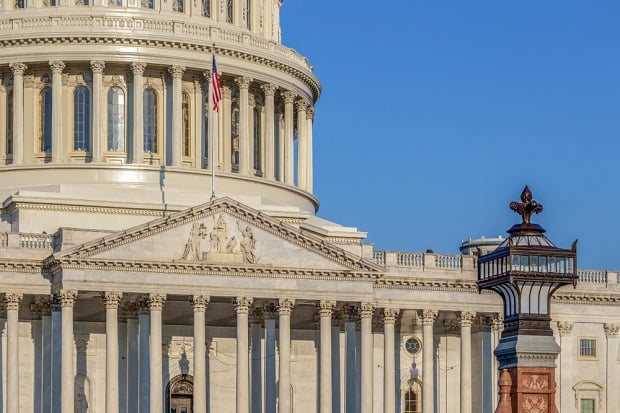 By resuscitating myRAs, the EASA would benefit those workers that do save in a retirement plan but don't pay federal income taxes. (Photo: Shutterstock)
By resuscitating myRAs, the EASA would benefit those workers that do save in a retirement plan but don't pay federal income taxes. (Photo: Shutterstock)
Prominent Democrats on the Senate Finance Committee have proposed legislation that would reform the existing Retirement Savings Contribution Credit into a retirement plan matching contribution from Uncle Sam.
The Encouraging Americans to Save Act, introduced last week, is designed to bolster the retirement savings of middle and low-income savers, whether they save through a workplace plan, a private sector IRA, or a state-administered IRA.
The current Retirement Savings Contribution Credit, or saver's credit, allows eligible savers to benefit beyond contributing pre-tax dollars to retirement plans. On top of that deduction, the credit offers a dollar-for-dollar reduction of tax liability for up to 50 percent of a retirement plan contribution.
Under EASA, the saver's credit would be replaced with a maximum 50 percent government match on contributions up to $1,000. Individuals making less than $32,500, and couples making less than $65,000, would be eligible.
The existing saver's credit applies to 50 percent of an individual filer's contribution if their adjusted gross income is less than $19,000, or $38,000 for a married couple.
Tens of millions of Americans fail to benefit from the saver's credit because they don't make enough to pay federal income taxes.
Analysis of IRS data by Pew Research Center shows 43.5 million Americans owed no federal income taxes in 2015.
Raising MyRA from the dead
It's unclear how many filers with no federal tax exposure contribute to workplace retirement plans, IRAs, or have been enrolled in OregonSaves, the Beaver State's auto-IRA retirement plan.
For qualifying savers who are enrolled in plans, the maximum $500 match from the Treasury Department would be automatically deposited into the retirement account listed on tax returns.
In the event that a qualifying saver doesn't provide an account, the government match would be deposited into a myRA account.
By resuscitating myRAs, the EASA would benefit those workers that do save in a retirement plan but don't pay federal income taxes.
Conceived by the Obama administration, myRAs were rolled out in 2014, and designed to extend retirement plan coverage by auto-enrolling workers without a retirement plan into a federally administered IRA.
Upwards of 30 million participants had contributed $34 million to the accounts before the program was discontinued in the summer of 2017. The Trump administration cited slack demand for the accounts and overhead costs as reason for halting the program, which reportedly racked up $70 million in administrative expenses since its inception, and was projected to cost another $10 million annually.
EASA would reestablish myRAs, which invest savings in Treasury bonds and cap account values at $15,000. Once accounts reach the cap, they are rolled over to a private sector provider's IRA.
“Instead of supporting retirement programs and incentives to lift up workers, Republicans in Congress and the Trump administration continue to use the tax code as a way to benefit those who need it least,” said Sen. Ron Wyden, D-OR, ranking member of the Finance Committee and sponsor of the legislation.
“It's a double whammy that's fueling the country's retirement crisis. My legislation aims to level the playing field and create an opportunity to help working families save,” added Wyden in a statement.
Senators Ben Cardin, D-MD, Bob Casey, D-Pa, Amy Klobuchar, D-MN, and Michael Bennet, D-CO, all members of the Finance Committee who have previously sponsored retirement legislation, are co-sponsors to the bill.
In introducing the bill during the lame duck session, the Senate minority party could be advancing a gambit in negotiations over a more comprehensive retirement plan bill.
The Retirement Enhancement Security Act, which has been introduced in both Chambers of Congress, is reportedly being reviewed by tax-writing committees and committees with jurisdiction over retirement policy in the event that it can make it onto the lame duck legislative agenda.
READ MORE:
Fate of Open MEP legislation in doubt amid current political climate
A divided Congress or not, retirement legislation could still move to president's desk
© 2025 ALM Global, LLC, All Rights Reserved. Request academic re-use from www.copyright.com. All other uses, submit a request to [email protected]. For more information visit Asset & Logo Licensing.








